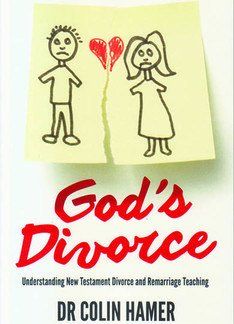This book is based on the author’s PhD thesis. His contention is that the early church was influenced in its understanding of the New Testament more by Neoplatonism than the Old Testament. So, marriage came to be seen as a sacrament made in heaven by God, and the ‘marriage’ of Adam and Eve in Genesis 2:23 — rather than the ‘leave and cleave’ instruction of Genesis 2:24 — as the paradigm for all future marriages. Nor was the correct perspective fully regained at the Reformation.
The reviewer is not convinced that one can separate Genesis 2:23 from 2:24 in this way, for the latter verse begins, ‘For this reason’. This surely means that marriages are meant to be as like Adam and Eve’s as possible.
He says that marriage in the Old Testament was a contract between two parties or their families, with no involvement by religious or state authorities, and we will better understand what God teaches about human marriage if we study God’s ‘marriage’ to Israel: the Lord divorced both Israel and Judah; he remarried the church, with Christ as the bridegroom.
One of the author’s main points is that Exodus 21 teaches that the husband must provide for the wife but not compel her to stay in the relationship, so sinless human divorce must be possible in some circumstances for the marriage idea to work. The reviewer is unconvinced by his exegesis of certain key passages: Malachi 2:14-6 (pp. 51-2); John 4 (pp. 60-66); Matthew 19:4-6 (pp. 98-111).
Regarding 1 Corinthians 6:15-16, the author denies that Paul teaches marriage is made when intercourse occurs, and sexual intercourse outside a marriage automatically terminates the marriage (p.94). The Bible’s teaching in 1 Corinthians 7 that a believer can remarry if he or she is deserted by an unbeliever is applied to desertion by a believer also.
On page 108, the author rejects the view that, when Jesus said divorce for invalid reasons and remarriage equals adultery, he meant it literally. He claims Jesus was speaking metaphorically. But is this not what is taught in liberal circles?
The author states that, if a divorce is scripturally valid for sexual immorality, both parties can remarry without sin. Also, that a couple living together are to be regarded by the church as married (surely implying that it is sexual intercourse, after all, which makes the ‘one flesh’ bond, in contradiction of his previous position?).
In summary, this book allows divorce on wider grounds than God does in his Word. A wife is free at any time to leave a marriage: ‘A divorce initiated by a wife is to be treated as a valid divorce’ (p.134). The reason alleged is that Israel were free to divorce God at any time. But if they did, it was surely a tremendous sin.
The book has some thought-provoking points, challenging received wisdom where it needs challenging. But its main thesis is, in my judgment, flawed. The author says that he has stood on shoulders of giants. I think he actually stands on slippery ground.
John Palmer
Leigh







